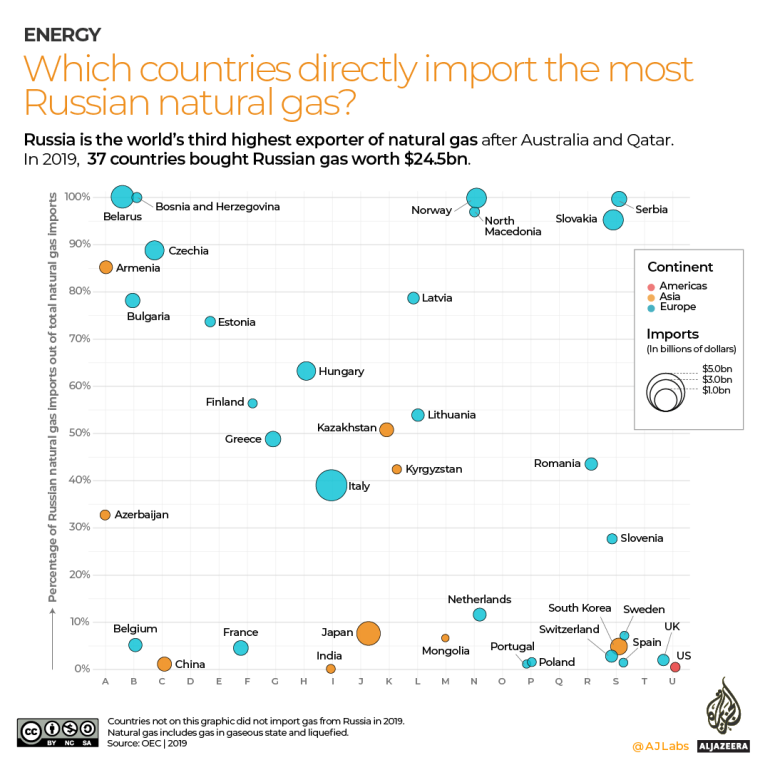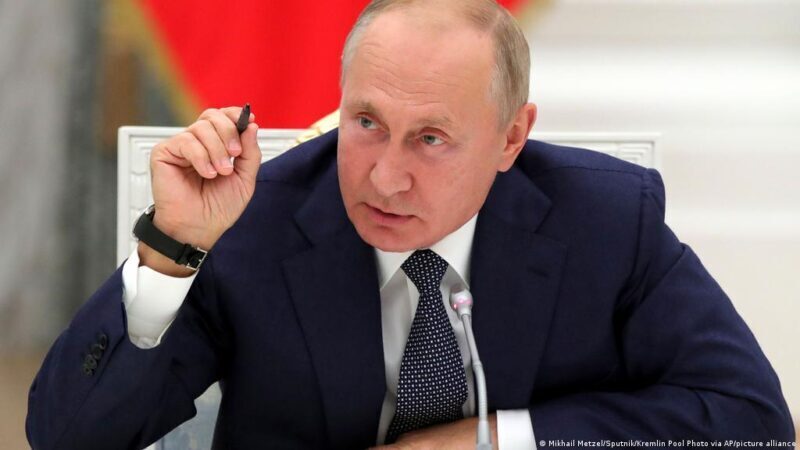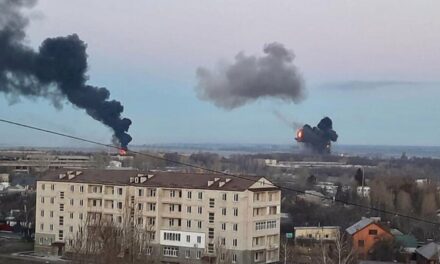Russia has taken a hit from unprecedented Western sanctions over events in Ukraine, what it terms a “special operation”, that started on February 24. Before that, the rouble traded at about 80 to the dollar.
Post invasion the rouble now for the first time strengthen to 105 to the dollar in recent sessions after falling to a record low of 120 in Moscow this month and even further on the interbank market to 150.
Putin made the announcement at a meeting with top government ministers televised on Wednesday. He said Russia would start selling gas to “unfriendly” countries in roubles, after a freeze on Russia’s assets by foreign nations had destroyed Moscow’s trust.
European countries’ dependence on Russian gas and other exports has been thrown into the spotlight since Russia’s invasion of Ukraine.
“Russia will continue, of course, to supply natural gas in accordance with volumes and prices … fixed in previously concluded contracts,” Putin said at a televised meeting with top government ministers.
“The changes will only affect the currency of payment, which will be changed to Russian roubles,” he said.
Putin said the government and central bank had one week to come up with a solution on how to move these operations to the Russian currency and that gas giant Gazprom would be ordered to make the corresponding changes to gas contracts.
As of January 27, Gazprom’s sales of natural gas to Europe and other countries were primarily settled in euros, at approximately 58 percent.

“An understandable and transparent procedure of making payments should be created for [all foreign buyers], including acquiring Russian roubles on our domestic currency market,” Putin said.
As a result the Russian rouble briefly leapt to a three-week high past 95 against the dollar on Wednesday in Moscow, before settling close to 100, after President Vladimir Putin said Russia would start selling its gas to “unfriendly countries” in roubles.
By 13:13 GMT, the rouble was 3.4 percent stronger against the dollar at 100.02, earlier clipping 94.9875, its strongest since March 2. It had gained 3.5 percent to trade at 110.50 versus the euro.
Meanwhile, Russia appeared to have averted default on foreign debt by making a coupon payment on a sovereign eurobond, maturing in 2029, in US dollars. A bondholder said the payment had been received.
But Russian holders of domestic corporate eurobonds face delays in receiving payments settled through international agents, as transactions get snarled up by sanctions, Russia’s National Settlement Depository (NSD), companies and analysts said.
Demand for rouble liquidity has declined as the central bank sold 0.8 trillion roubles ($7.7 billion) at a one-day “fine-tuning” repo auction on Wednesday, lower than in previous days.
“Demand at overnight repo auctions is falling fast,” Veles Capital brokerage said in a note, explaining that even though banks’ liquidity levels have fallen to their lowest since June last year, lenders are repaying previous repo debts to the central bank.









